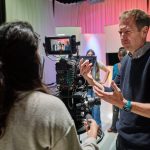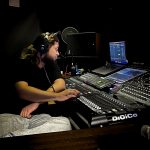Nutrition is an excellent course to pursue at BU for many different reasons. The reason I love this course is that the lecturers are extremely friendly and are easy to talk to, making you want to listen and learn much more. But putting that aside the resources available to use are excellent, there’s even a library open 24/7!
In this course a range of areas are covered and not just ‘food’ as everyone seems to think! Rather than learning ‘fruit is good and chocolate is bad’, you get to find out why people love eating chocolate and other foods like it! What your mind is thinking about food and so much more. I’m no health freak or fitness craver (so don’t feel intimidated by its title).
Within one of the modules you could measure how much CO2 you produce during exercise, it’s not too strenuous either so you don’t look at it like ‘exercise no!’ In the first year you cover six modules, three in the first term and three in the second. I’m just finishing the first three modules which are: Principles of Food and Nutrition, Chemistry and Research Methods. All three of them have taught me different things that I didn’t know before, one of them being that I could find Research Methods fun!

It’s not all based on food in the beginning, which I thought was a good start to the course as it didn’t overload you and eased you into it. In Chemistry we learnt the basics of science and the most interesting thing I learnt was about hand warmers, and how they work and what’s happening to them, and the reaction which is occurring. That wasn’t something I expected to learn about on this course.
Within the module Principles of Food and Nutrition, I learnt the nutrients and what they do in the body, how they work together, almost as if they were a team constantly helping one another to make the body function correctly! It truly is something amazing to know as it’s so complex.
Next term is when it becomes even better as the modules are Human Anatomy and Physiology, Psychosocial Aspects of Health and Human Food Chain. These modules are a lot more focussed on food and the body; I’m excited to see what I learn from them as I have never learnt anything like it before.
I’ve also heard from other students and lecturers that in the following years, as a lecture we get to observe mouldy food! And who doesn’t want to watch food go mouldy as a lecture? That’s a lot more fun than learning equations. If knowing you get to watch mouldy food doesn’t make you love the sound of this course, I don’t know what will.
By Sarah Holding









